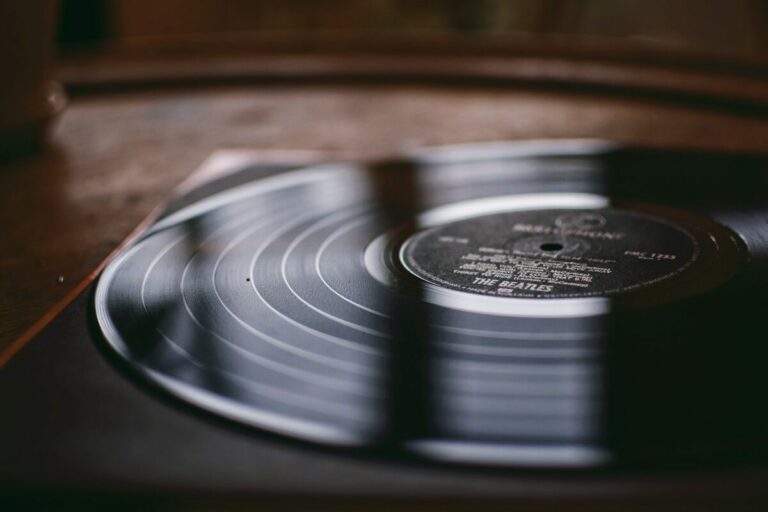Music That Matters Still Today: Emotional Resonance and Wellbeing As Grunge Spoke to the Unseen
Explore grunge’s enduring impact on emotional wellbeing, connection and identity—how raw music and honest stories shaped a generation’s inner world

There was a particular kind of loneliness that lived in the bedrooms of misfits in the early 1990s – the sense of being invisible in a world that seemed to have no place for you. Until you heard the raw scratch of a distorted guitar, the unpolished honesty of a voice that didn’t try to be pretty, and lyrics that seemed to know exactly what it felt like to be on the outside looking in.
This emotional salvation is at the heart of ‘Slacker: 1991, Teen Spirit Angst and the Generation it Created’, a book by music historian Rob Janicke that has now been optioned for development as a documentary series. The project, being produced by VIEWPARK and Inspired Girl, promises to explore not just the music history of grunge, but the deeply personal stories of survival and hope that the movement created.
More Than Music: A Generation’s Lifeline
Grunge wasn’t just another musical movement – it was a voice for Generation X’s disillusionment and alienation, speaking directly to young people who felt misunderstood by society. The raw, emotionally intense lyrics about isolation resonated with those who had been dismissed as ‘slacker’ youth.
Janicke, founder of Generation Riff, understands this connection intimately. His book chronicles his own journey from childhood therapy to finding salvation in mixtapes of gritty guitars and unfiltered truth. ‘I wrote Slacker for the kids like me – those of us who felt invisible and found life in sound,’ says Janicke. ‘Grunge didn’t just speak to us – it saved us.’
The documentary series will bring these personal narratives to the screen, with Janicke serving as both producer and host alongside Krysanne Katsoolis, Jennifer Tuma-Young and Tara Fogarty-Graziano.
The Emotional Pull That Changed Everything
What made grunge different from the polished pop and glam metal of the 1980s was its unflinching authenticity. Bands like Nirvana, Pearl Jam and Soundgarden offered raw honesty that contrasted sharply with the manufactured music of the previous decade.
The movement came from a sense of isolation felt by youth in the Seattle music scene, with emotionally-laden songs that spoke directly to a generation dealing with anger, social isolation and themes of mortality. It wasn’t just the music – it was the anti-commercial stance, the stripped-down aesthetic and the rejection of consumerism that created a cultural phenomenon beyond sound.
Women were integral to this raw honesty, though often overlooked. Female-fronted bands like L7 and Heavens to Betsy were foundational to the scene, contributing politically active voices and feminist messages that added layers to the movement’s authenticity.
Stories That Matter Now
‘Slacker is a moving, meaningful lens into why grunge mattered – not just musically, but emotionally and socially,’ says VIEWPARK CEO Krysanne Katsoolis. ‘Rob’s voice is authentic and vulnerable, and we’re honoured to partner with him to bring this electrifying story to the screen.’
Jennifer Tuma-Young, CEO of Inspired Girl, sees the project’s relevance extending far beyond nostalgia. ‘This story reflects the soul of a generation,’ she says. ‘Rob brings not just the music, but the emotion, the psychology and the hope that came with it. These personal stories matter not just for GenXers, but also for the generations of today and the future.’
The producers’ focus on emotional storytelling rather than just music history reflects an understanding that the psychological impact of grunge transcends its era. The documentary aims to spotlight how these authentic voices provided catharsis for those who felt unseen.
Why These Feelings Are Timeless
The emotional territory that grunge explored – anxiety, invisibility, the search for belonging – hasn’t disappeared with the passing decades. Music therapy research shows that music provides emotional healing by engaging brain regions involved in emotion and reward, offering safe spaces for expression and mood regulation.
Studies show that music therapy decreases anxiety levels and improves daily functioning in people with depression. Whether through singing, listening or creating music, it offers space to release and process difficult emotions – exactly what grunge provided for countless listeners in the 1990s.
The psychological benefits that drew people to grunge’s raw honesty remain relevant today. The movement’s legacy endures because music continues to enhance emotional resilience and wellbeing, reducing stress and anxiety while fostering emotional expression and social connection.
What Comes Next
The documentary series is currently in development, with production timelines, casting decisions and additional details expected to be announced in the coming months. The project builds on Janicke’s extensive research for both his book and his Generation Riff multimedia project, which celebrates over 30 years of musical memories centred around grunge and alternative music from 1991 to 2021.
Janicke’s work as a music historian includes interviews with platinum artists and industry figures, providing insider perspectives on how grunge marked a cultural shift and gave voice to a generation often dismissed as slackers.
For Anyone Who’s Ever Felt Unseen
Whether you grew up with these sounds or simply understand what it means to feel invisible, the upcoming documentary series promises to explore territory that remains painfully relevant. Young people today continue to struggle with anxiety, depression and the search for authentic connection, and the honest voices that emerged from Seattle’s music scene offer something that polished production can’t – the comfort of being truly seen and understood.
The grunge movement proved that sometimes the most powerful thing art can do is simply acknowledge that you’re not alone in feeling lost. As this documentary prepares to bring those stories to a new generation, it carries the same message that saved so many in the 1990s – your feelings are valid, your voice matters, and somewhere in the feedback and distortion, there’s a place where you belong.





